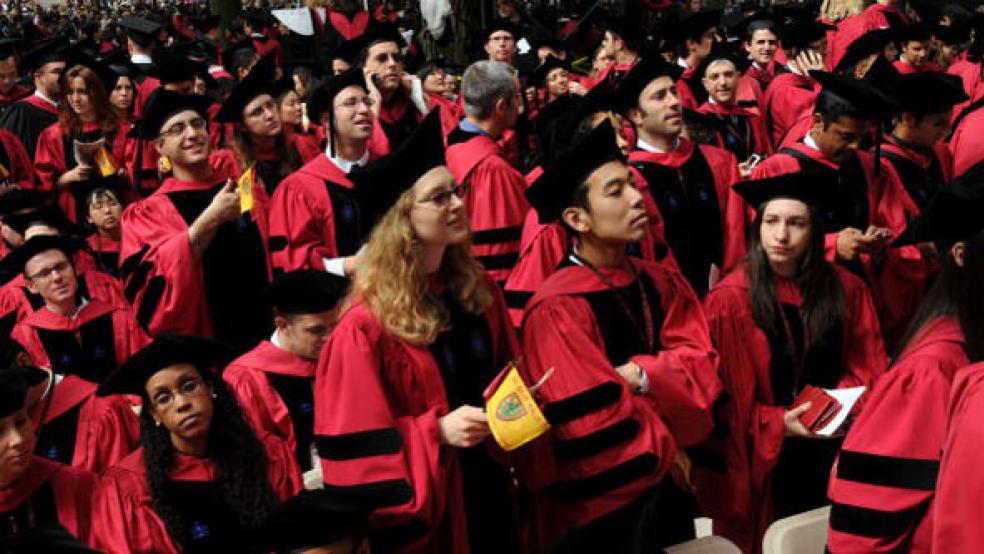No group of people in America is checking their inboxes more often than high school seniors, desperate to learn if they’ve been admitted to the college of their choice.
Among America’s most elite families, getting into the Ivy Leagues is what parents — and their kids — care about most. But the frenzy applies across the board as students stress about their fate in the years to come.
Related: The College Lawsuit That Will Make Your Jaw Drop
If there’s a key lesson to be learned from today’s college application process in which some kids apply to 10, 15, even 20 schools at $75 a pop (partly because the Common App has made it easier to do so), it’s this: Calm down.
If America’s young high achievers don’t get into the elite school of their choice, they’ll go somewhere else. That “somewhere else” may prove to be the place where they succeed beyond their wildest dreams. That’s the message of Where You Go Is Not Who You’ll Be: An Antidote to the College Admissions Mania, a new book by New York Times columnist Frank Bruni.
“The nature of a student’s college experience — the work he or she puts into it, the skills that he or she picks up, the self-examination that’s undertaken, the resourcefulness that’s honed — matters more than the name of the institution attended,” Bruni writes. “In fact students at institutions with less hallowed names sometimes demand more of those places and of themselves. Freed from a focus on the packaging of their education, they get to the meat of it.”
Related: 10 Public Colleges with the Most Luxurious Dorms
Many decisions, of course, hinge on college affordability. As if sticker prices hadn’t gone high enough, 57 U.S. colleges and universities are right now charging over $60,000 a year for tuition, room and board, though most of those schools also hand out financial aid. The average annual sticker price of attending a private four-year college right now is $42,000. For an in-state public college, it’s $23,000.
Placed in the context of America’s current student debt total of some $1.2 trillion (with the average balance at $27,000), this is a recipe for crushing debt loads over a long period of time that can interrupt one’s ability to buy a home, have a car, and otherwise progress economically.
In addition to the advice to calm down amid all the admissions craziness, here are five other important points, as cited by Bruni in his new book:
The college admissions game today is too flawed and rigged to be given overwhelming credit for defining a person’s well-being or self-worth.
Education happens across a broad spectrum of settings and in infinite ways. “It starts well before college. It continues long after college. College has no monopoly on the ingredients for professional success or for a life well lived.”
Related: The Biggest Money Scam on College Campuses
“College is supposed to set you on your way, and if you expect it to be a guarantee forevermore of smooth sailing – then you’ve got trouble infinitely greater than any rejection notice.”
What matters is what you do in the classroom and in the lab, not the school banner that flutters over you or the school colors you choose to wear. A prestigious college doesn’t necessarily make you successful in life. You do that for yourself.
“What really drives your earnings is your field of study,” Bruni quotes Anthony Carnevale, director of Georgetown University’s Center on Education and the Workforce, as saying. “If you go to Harvard and become a schoolteacher, you’re not going to make more than another schoolteacher who didn’t go to Harvard.”
Frank Bruni, by the way, did his undergraduate work at the University of North Carolina at Chapel Hill, a public university, and graduated Phi Beta Kappa with a B.A. in English. He went on to attend Columbia University's Graduate School of Journalism.
Top Reads from The Fiscal Times:


